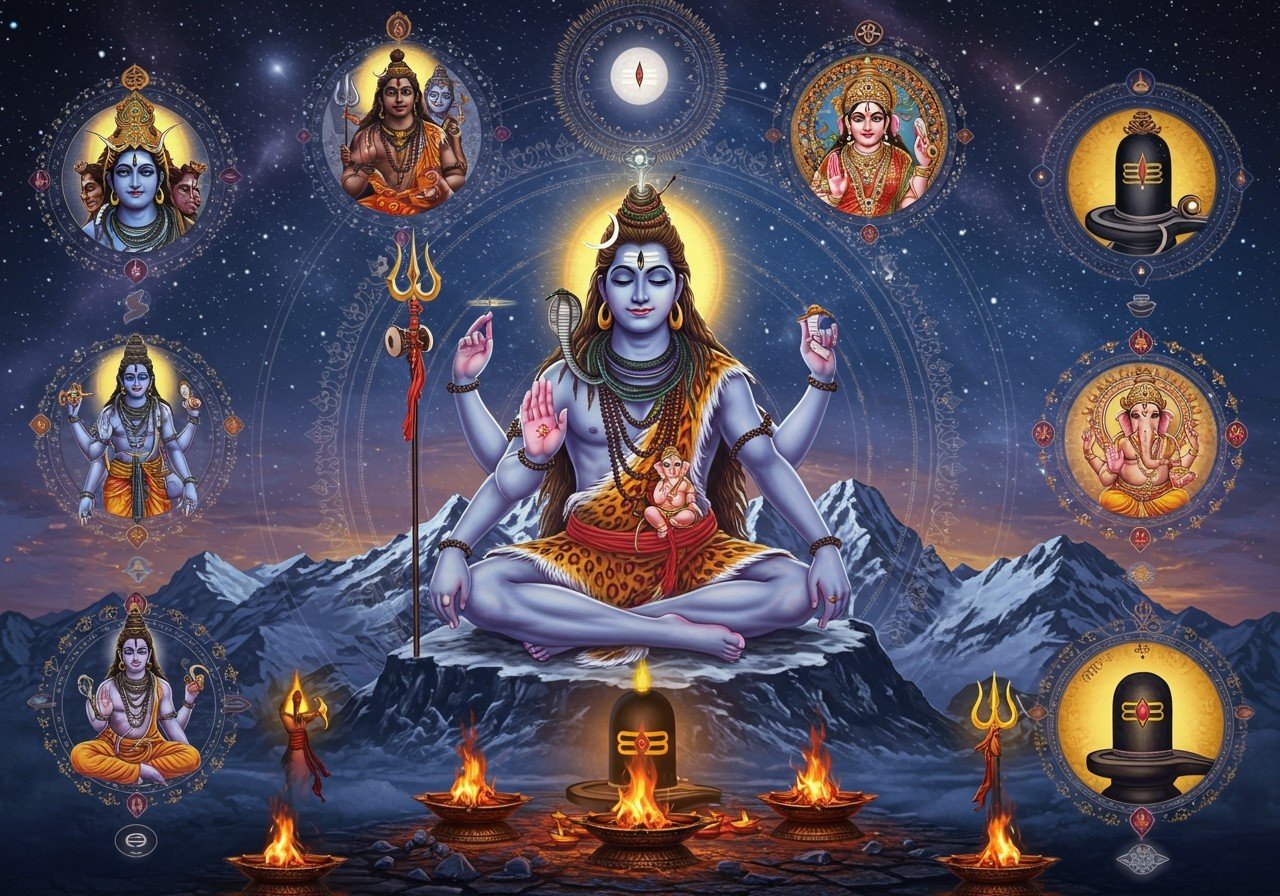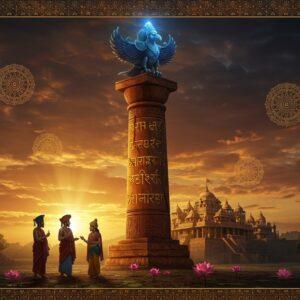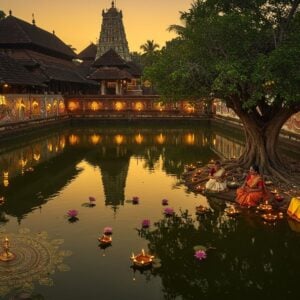
Shaivism, a revered tradition within Hinduism, holds Lord Shiva as the paramount being. This blog delves into the vast expanse of Shaivism, shedding light on its various forms, regional nuances, and profound influence on art and culture across India. Understanding Shaivism’s origins and evolution allows us to truly appreciate its rich tapestry of traditions and practices. It transcends religious boundaries, deeply impacting cultural expressions throughout the nation.
Understanding the Different Schools of Shaivism
Shaivism encompasses a variety of schools of thought, each offering a unique perspective on the path to spiritual enlightenment. Let’s explore some of the prominent branches:
-
Saiva Siddhanta: The Path of Devotion and Knowledge
Saiva Siddhanta, a prominent school, emphasizes the dualistic relationship between the individual soul (pashu) and the Supreme Lord Shiva (Pati), with the bonds (pasha) that keep the soul entrapped. It offers a path to liberation through charya (external worship), kriya (intimate service), Yoga, and jnana (knowledge). It is a devotional, dualistic system guiding followers towards realizing their true nature, shivatva.
At poojn.in, you can find a wide range of products to support your Saiva Siddhanta practices. Explore our collection of exquisite Adi Yogi murtis, perfect for your home altar, and enhance your connection with Lord Shiva.
-
Vira Shaivism (Lingayatism): Embracing Oneness with the Linga
Vira Shaivism, also known as Lingayatism, centers around the worship of Shiva in the form of the Linga. Established by Basava in the 12th century, it promotes monotheism and rejects the caste system and Vedic authority. Devotees often wear a Shivalinga as a constant reminder of their faith.
Discover our collection of sacred Shiva Lingas available at poojn.in. These Lingas are crafted with utmost reverence, making them ideal for your personal worship and meditation.
-
Kashmiri Shaivism: Unveiling the Illusion of Reality
Kashmiri Shaivism offers a monistic perspective, considering Shiva as the sole reality and everything else as an illusion (Maya). It emphasizes self-realization through meditation and the understanding that the entire creation, including individual souls, is a projection of Shiva’s consciousness.
Deepen your understanding of Kashmiri Shaivism with sacred texts and insightful guides available at poojn.in. Explore our collection of books on Hindu mythology.
-
Nath Shaivism: The Yogic Path to Self-Discovery
Nath Shaivism, a predominantly ascetic tradition, emphasizes yogic practices, including Hatha Yoga and Kundalini Yoga, as the path to spiritual awakening. Followers adhere to the teachings of Gorakhnath and Matsyendranath and worship Adinath, a form of Shiva.
-
Pashupata Shaivism: An Ancient Esoteric Tradition
Pashupata Shaivism, an ancient and esoteric tradition, involves unique methods of yoga practiced by a dedicated few. Its practices are often veiled in secrecy and passed down through generations of initiates.
Other Notable Aspects of Shaivism
Beyond these main schools, Shaivism encompasses a wide range of other aspects and classifications:
-
Vedic-Puranik Shaivism: Rooted in Ancient Scriptures
The majority of Shaivites follow Vedic-Puranik traditions, revering the Vedas and Puranas as sacred texts.
Poojn.in offers a curated selection of Lord Shiva murtis perfect for Vedic-Puranik worship. These murtis, crafted with meticulous detail, can bring a sense of sacredness to your home.
-
Tantric Shaivism: Exploring Mystical Practices
Tantric Shaivism involves esoteric practices that may or may not align with Puranic traditions, offering a mystical path to understanding Shiva’s energy.
-
Dualistic and Monistic Views within Shaivism
Shaivism encompasses both dualistic (Dvaita) and monistic (Advaita) schools of thought. Dualistic schools view the individual self and Shiva as distinct realities, while monistic schools emphasize the oneness of the two.
Explore our blog posts about Shiva temples to learn more about the diverse practices and beliefs within Shaivism.
-
Aghoris: Devotees of Shiva as Bhairava
Aghoris are devotees of Shiva in his fierce form, Bhairava. They are monists who seek liberation through unconventional sadhana, often performed in cremation grounds.
How Poojn.in Supports Your Shaivite Practices
At poojn.in, we understand the importance of having access to authentic and high-quality items for your spiritual practices. We offer a wide range of products to support your Shaivite journey:
- Ritual Items for Shiva Worship: From beautifully crafted Shiva Lingams to traditional Rudraksha malas and Dasha Mrittika (ten sacred clays), we have everything you need to create a sacred space for your worship.
- Puja Essentials: Find all the essential items for your puja, including diyas, incense, aarti thalis, and more.
- Sacred Texts and Guides: Deepen your understanding of Shaivism with our collection of books on Shaivite philosophy, rituals, and practices.
- Sapta Jal (seven holy waters) and other offerings: We offer a variety of special items, like Sapta Jal and barley, to enhance your rituals.
All our items are carefully sourced and verified for authenticity and ritual suitability. We offer personalized assistance and pan-India delivery with secure packaging to ensure the sanctity of your puja items. Visit www.poojn.in or contact us at 03369029784 or WhatsApp 9476142738 for any assistance.
Embracing the Rich Tapestry of Shaivism
Shaivism, with its deep-rooted traditions and diverse expressions, provides a profound spiritual journey for its followers. From the devotional fervor of Saiva Siddhanta to the yogic paths of Nath Shaivism, each school illuminates a unique facet of Lord Shiva. This diversity embodies the essence of Hindu tradition, where multiple paths converge towards the divine. Explore the various forms of Shaivism to gain a deeper appreciation for Shiva’s all-encompassing presence and discover a path that resonates with your own spiritual aspirations.


